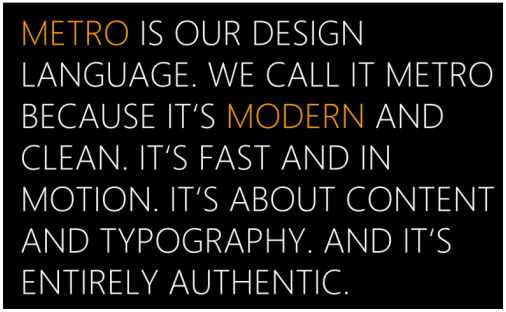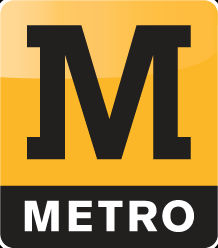| Microsoft Finally Decides What To Call Metro Apps |
| Written by Mike James |
| Wednesday, 25 March 2015 |
|
At last it does seem that Microsoft has decided what the proper naming for its new non-Win32 apps should be. Why has it taken so long and what does it tell us? One announcement at this year's WinHEC almost went unnoticed - thanks to Paul Thurrott for spotting it. It was the decision, at last, that non-Win32 apps should be called Windows apps. If you don't understand what all this is about I should remind you of the history. It all started well, with Microsoft going out of its way to stress, not API design, but style. The new Metro apps were not only to use a different API, but they were to look very different. The new API was, and still is, called WinRT but the headlines were full of "Metro".
Then the name "Metro" was suddenly dropped. We still can't be 100% sure why but most probably because it belongs to someone else. Whatever the reason, things started to go wrong for Windows 8 from this point. From then until now there was no single unified guidance on what to call Metro apps now that they couldn't be Metro apps. A variety of names were tried out, most notably "Modern" and most recently "Universal". Was this a coincidence? It could be, but from the outside it seemed to be an indication that Microsoft wasn't really on the ball. If it couldn't get the name right in the first place and couldn't see that getting a good replacement was important then presumably the corporate mind wasn't what it used to be. Until now that is. At a WinHEC session Don Box, the man who gave us the disaster that was SOAP, revealed that universal apps should now be called, simply, Windows apps. This leaves open the question of what to call traditional Win32-based apps? The answer is that we should call them Windows desktop applications. So to make this 100% clear:
OK, I think most people could live with this dull and boring naming, but surely everyone is going to drop the "Windows" leaving apps to mean WinRT apps and desktop applications to mean Win32 apps. This means that the type of app that Microsoft wants use to switch to writing gets the shorter and more stylish "app" and the, from Microsoft's point of view, legacy, software gets the name "desktop application" i.e. not "desktop app". These might seem small differences, but they are telling. The first is that they are designed to push WinRT apps over Win32 apps, even though Win32 is a much richer and more mature platform. The second is that compared to the stylish "Metro" these labels don't get off the launchpad as far as creativity goes. Finally the split between "universal apps" and just "apps" suggests that although Microsoft might have woken up, it isn't yet thinking with a single mind. I wonder if there will be any creative spark willing to take final control of the naming mess that was Metro and pull off something better?
More InformationDeveloping for the Windows 10 Device Platform (video of Don Box session) Related ArticlesWindows 10 - Get Ready For Summer Launch Windows 10 Cannot Fail - It's Free Windows XP Loses Share Windows 8.1 Gains Developers - Microsoft Is Back! Windows 8 Doing Badly, Windows 7 Gets Extension Microsoft Reveals "Universal" Apps Windows 8 Users Hardly Use Any Modern Apps How Microsoft Could Have Done Metro
To be informed about new articles on I Programmer, install the I Programmer Toolbar, subscribe to the RSS feed, follow us on, Twitter, Facebook, Google+ or Linkedin, or sign up for our weekly newsletter.
Comments
or email your comment to: comments@i-programmer.info |
| Last Updated ( Friday, 27 March 2015 ) |




